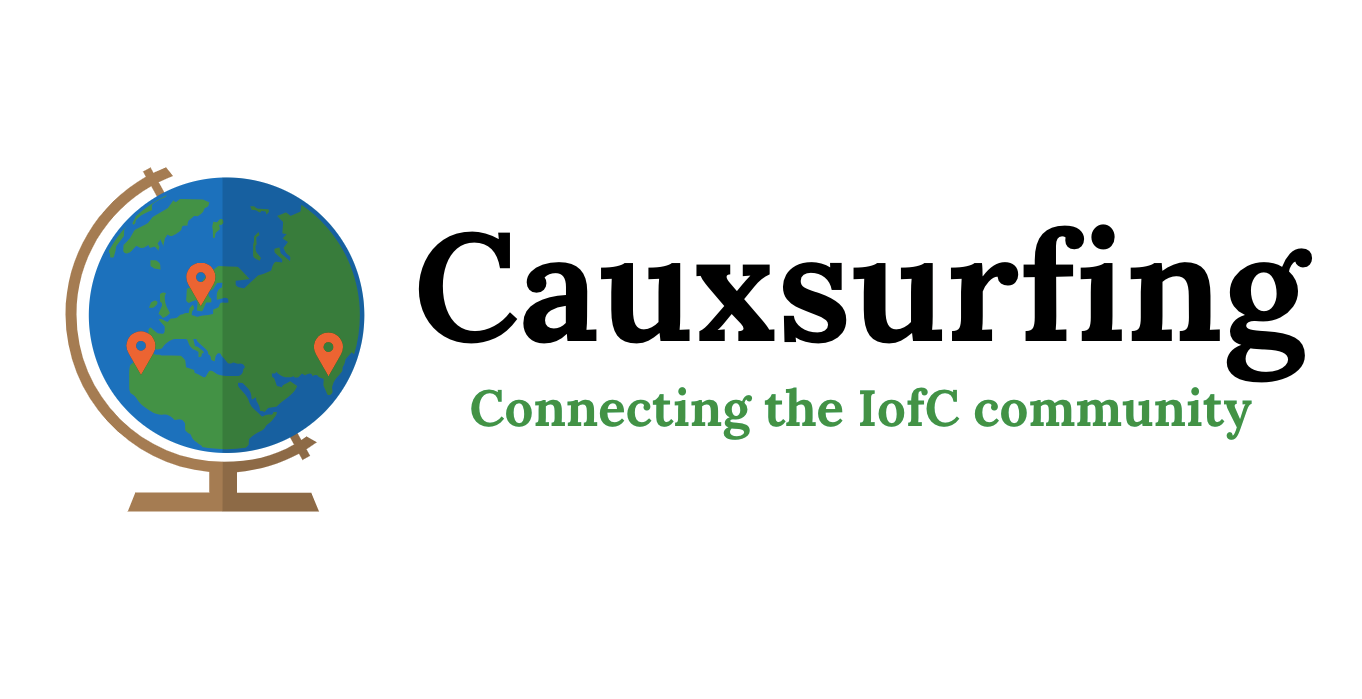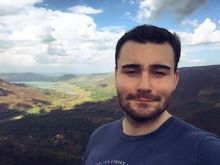Cauxsurfing – A network of trust around the world
An interview with Martin Healey, founder of Cauxsurfing
16/05/2019Those of us who have already been to Caux Conference Centre in Switzerland probably all agree on one thing: this place is special. But while experiencing special moments up on a Swiss mountain top might be one thing, the reality back home can sometimes feel very different. The recently launched private initiative “Cauxsurfing” is a platform for everyone who wants to continue the Caux experience – through something as simple as an empty guestroom or a spare mattress. Martin Healey, as the founder of Cauxsurfing, explains how it works and why this project is so important to him.
How did you come up with the idea of Cauxsurfing?
When I think of Caux, I think of all the wonderful people I’ve met there over the years and I wonder how long it’s been since I last saw some of them. My initial idea was to create a Couchsurfing-type network for the IofC community, making it easier for us to visit and reconnect with old friends and get in touch with other IofC members who live close by or while travelling.
When was Cauxsurfing launched?
Cauxsurfing was launched on 15 March 2019 after several months of brainstorming, formulating guidelines and testing. I was a Caux Scholar in 2016 and had taken part in the Young Ambassadors Programme in 2017 as a participant and 2018 as a facilitator. Each summer several learning programmes take place at Caux Conference Centre and hundreds of participants take part in the Caux Forum. The question was: how can people stay in touch and strengthen their networks once they leave Caux? And so, the idea of Cauxsurfing was born. As of 14 May, we have 180 confirmed members and another 80 who are in the process of being approved.
How does it work?
Cauxsurfing is run through a closed Facebook group, in which everybody creates a post, indicating their location, what kind of interactions they are interested in, as well as some information about themselves.
In order to be approved as a member of Cauxsurfing, you need three existing members to act as your referees. So far, we only ‘advertised’ Cauxsurfing with a few posts on Facebook, so I am convinced that we will quickly see the community grow after we start promoting it across IofC.
What are the main objectives of Cauxsurfing?
One of the main objectives is to strengthen and widen the IofC network worldwide. We want to help members of the IofC community find each other, rekindle old friendships, and create new ones. We want to give the IofC community an idea of how big and diverse it really is and how close the next member may be. I personally hope that Cauxsurfers will use this information to start initiatives together and strengthen local IofC work.
What makes Cauxsurfing relevant to people interested and/or involved in IofC?
I think Cauxsurfing is for everyone involved or interested in IofC. You came to Caux for the people? Meet more through Cauxsurfing. You want to start or join an initiative? Use Cauxsurfing as a recruitment tool in a certain country or region. You are suffering from ‘Caux-withdrawal' symptoms after the Caux Forum has ended? Live the Caux spirit in your daily life by inviting or visiting other Cauxsurfers.
How have IofC’s values, and the fact that you grew up with IofC, shaped your life?
Well, I literally would not exist without IofC. My parents met while volunteering for IofC and I had always heard of this magical place while growing up. My first time at the conference centre in Caux was the IofC Winter Gathering of 2008 and since then, I’ve been volunteering with IofC in various capacities. Coming to Caux has influenced my life tremendously. I am very grateful for the opportunity to grow up in such an international setting with friends from all around the world and the global perspective it has given me. The power of meeting so many different people and listening to their personal stories is very important.
One of the main focus points of IofC is trustbuilding. Which role does trustbuilding play in your work with Cauxsurfing?
Trust is vital for Cauxsurfing. We trust that the people we meet at the Caux conference centre are good people. This helps us open up and be more trusting towards others than we would be in our daily lives. What sets Cauxsurfing apart from services such as Couchsurfing is that we expect to host or stay with people we can trust, who have a similar set of values. I believe that Cauxsurfing is a great means to increase trust and can help bring the international IofC community closer together.
So now that Cauxsurfing is launched – any new and original projects we might discover in the future?
Launching a project is one thing, helping it grow is another. For now, I will be focusing on Cauxsurfing and on finishing my Masters degree. I do hope that we will be able to regularly share stories from Cauxsurfing and all sorts of other meaningful encounters.
______________________________________________________________________________________________________________________________________________
Part of what we do, as Initiatives of Change, is inspire, equip, and connect people to address world needs, starting with themselves. We invite you to visit the Our Approach page and reflect on how you too can be the change you wish to see!
Do you want to get involved and join Cauxsurfing? All you have to do is log in to your Facebook account (or create one), visit our group and click on ‘Join Group’. The team will take it from there. Do you want to help facilitate Cauxsurfing? Get in touch with the Cauxsurfing team!
Martin Healey grew up in Southern Germany to German/British parents and travelling has always been an important part of his life. His experiences at the Caux Conference Centre helped him realize that he wanted to work with people from different backgrounds and for better relations between countries. Martin holds a BA in International Relations and is currently finishing an MA in Governance and Public Policy.
Interview by Ulrike Ott Chanu


